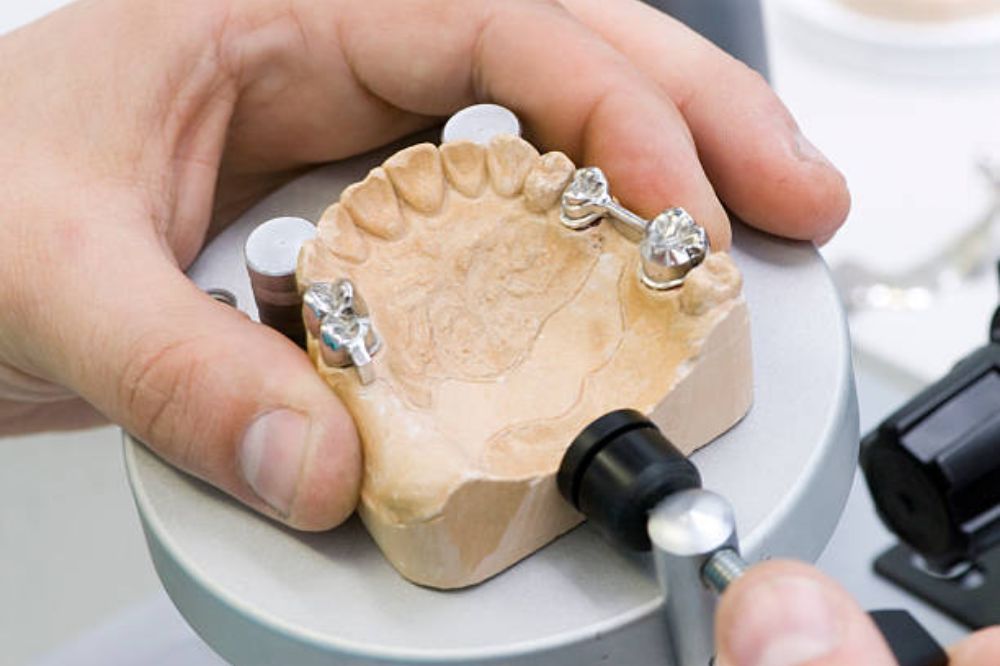
Have you experienced discomfort or noticed some unusual changes with your dental crowns or bridges? Identifying problems at the earliest stage is important in avoiding more chronic dental diseases. Visiting a dentist who specializes in dental crowns and bridges in Tampa can be a good step towards the maintenance of your smile as well as the prolonging of your restorations.
What are the Common Signs of a Damaged Crown or Bridge?
Dental crowns and bridges are made to last, but the materials can deteriorate, get chipped or lose their tightness with time. Don’t let the following signs go unnoticed to know if your dental crown or bridge is damaged:
- Feels of sensitivity to hot or cold
- The feeling of pain when chewing or biting
- Presence of cracks, chips, and fractures
- The feeling that a crown or bridge is loose or unstable
- The appearance of discoloration or dark lines at the base of the crown
In case a person is facing one or more of these problems, it is very important to get in touch with a dental specialist for a professional examination. A dentist at a prosthodontics near you will make the exact diagnosis and give the optimal repair options.
Why Early Detection Matters
Ignoring signs of damage can lead to more significant complications, such as tooth decay beneath the crown, gum infection, or even the need for complete replacement. Early repair can:
- Prevent further decay or damage
- Preserve the health of the surrounding teeth
- Maintain proper bite and jaw alignment
- Avoid more costly or invasive treatments
What are the Repair and Maintenance Options?
The dental professionals will suggest you:
- By re-cementing a loose crown, the problem will be fixed
- On a bridge or a crown that is chipped or cracked, you will get a replacement
- Drilling a root canal due to the occurrence of damage beneath
- Restoration through polishing or adjusting for comfort
Part of the process to prevent small issues from becoming major problems is regular checkups with your dentist.
What Are the Tips to Protect Your Crowns and Bridges?
The most important thing to do with your dental restorations is to prolong their life. Think about these tips:
- To prevent plaque buildup, dental work should be brushed and flossed daily
- Do not bite vigorously on things such as ice or hard candies
- Put on a night guard if you have tooth-grinding problems
- Visit the dentist regularly for early detection
Personalized Solutions for a Confident Smile!
Are you worried about your dental crowns or bridges? Recognizing the early dental crown and bridge repair signs ensures you can take action before more serious issues develop. So, book an appointment with Prosthodontics and Implant Therapy and allow our team to give you professional advice and unique solutions to make sure that your smile remains healthy and strong.
FAQs
Q1. How do I know if my crown is loose?
If your crown is loose, it may shift when you bite, or you may feel uncomfortable pressure. A dental professional can either put it back on him or take it off if necessary.
Q2. Is it possible to repair a fractured bridge?
Small cracks can be filled with bonding material, however, if the damage is severe, a new one will have to be entirely made.
Q3. How often should crowns and bridges be checked?
Regular dental visits every 6 months allow your dentist to monitor restorations and catch early signs of wear.
Q4. What are the reasons for the failure of crowns and bridges?
The usual reasons are dental caries under the filling, blow, grinding and normal wear out with time.
Q4. Is there a possibility of preventing the crowns and bridges from being harmed?
Definitely, a good dental care routine, cautious eating and the use of night guards are some of the preventive measures that can be taken.
